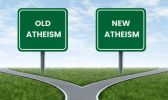
Conservatism is being promoted as a Christian political philosophy that should be applied to the governing of a country. That, at least, was the expressed opinion of David Haskell (Wilfred Laurier University) during his recent debate with Bruce Pardy (Queen’s Law).
Sponsored by Augustine College and First Freedoms Foundation, the 2024 Rand Debate (named after Canadian Supreme Court Justice Ivan Rand), was based on the following resolution: “Be it resolved that, as Wokeism destroys the West, the first responsibility of government is to foster a virtuous society, rather than protect individual liberty.”
In addition to the resolution itself being based on a contradiction (pitting “virtue” against “liberty” when in fact they are inseparable), the debate serves as an ideal exhibit of what we have been referring to as the “political dyslexia” persistently surrounding political debates and discussions.
Most disturbing is the Christian ‘virtue signaling’ now literally being advocated as a political response to the politics of WOKE virtue signaling.
David Haskell argues that through the power of the state, “conservatism as guided by the Judeo-Christian tradition is going to make choices you don’t agree with, especially if you’re not a religious believer.” Bruce Pardy, in response, notes that “this is why so many progressives think that conservatives are dangerous.”
Given Haskell’s subjective definitions of words like ‘liberal’, ‘virtue’, ‘equality’, ‘utilitarian’, and many others including ‘conservatism’ itself, Haskell and Pardy could never have arrived at anything resembling agreement. This creates a deep and unnecessary divide between those fighting for ‘liberty’ and those fighting for ‘conservatism’ in their mutual war against ‘Wokeism.’
Until more people who regard themselves as ‘conservatives’ begin to use definitions that are Just Right, their proposed solutions for defeating the WOKE ideology, let alone for achieving freedom, will always be just wrong and ineffective.
If you found this presentation valuable please consider supporting us:
🧡 PayPal






